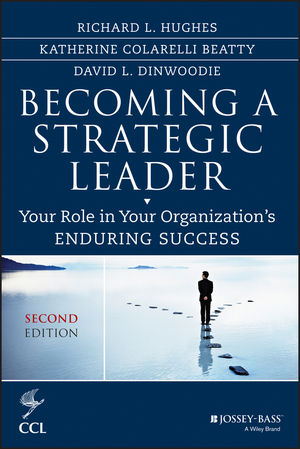What Makes An Event Successful?
A successful event is determined by effective planning and execution, engaging experiences, and positive attendee feedback. Hosting a successful event requires careful planning and execution, creating engaging experiences, and ensuring attendee satisfaction.
From corporate conferences and trade shows to music festivals and weddings, the key to a successful event lies in attention to detail, seamless coordination, and delivering memorable experiences. By carefully crafting an event agenda, selecting the right venue, and curating engaging content, organizers can create a captivating atmosphere that keeps attendees engaged and enthused.
Additionally, incorporating interactive elements, such as live entertainment, networking opportunities, and experiential activations, can further enhance the event’s appeal and leave a lasting impression.
Setting Clear Objectives
Setting clear objectives is essential for the success of any event. By outlining specific goals, organizers can better plan and execute the event, ensuring a focused and memorable experience for attendees.
Defining The Purpose
Before planning an event, it’s vital to have a clear understanding of its purpose. This helps to provide direction and clarity to all involved stakeholders. Defining the purpose requires asking important questions such as:
- Why is this event being organized?
- What is the main message or theme that should be conveyed?
- Who is the target audience and what do they expect?
Boldly defining the purpose allows event organizers to focus on delivering a meaningful experience that aligns with their desired outcomes. By clearly articulating the event’s purpose, all facets of the planning and execution process can be tailored to meet these objectives.
Establishing Measurable Goals
Once the purpose has been determined, it’s important to establish measurable goals that can be used to evaluate the event’s success. These goals should be specific, measurable, achievable, relevant, and time-bound (SMART). By setting measurable goals, event organizers can effectively track progress and make necessary adjustments along the way. Some examples of measurable goals include:
- Increase attendee satisfaction by 20% compared to the previous year.
- Generate $10,000 in revenue through ticket sales.
- Ensure a minimum of 50% of attendees actively engage with event sponsors.
By establishing these measurable goals, event organizers can set a clear benchmark for success and measure the impact of their efforts. It also enables them to identify areas that may require improvement for future events.
Effective Planning And Organization
Effective planning and organization play a pivotal role in the success of any event. From meticulous scheduling to seamless coordination, these factors ensure a smooth and unforgettable experience for attendees.
Effective planning and organization are crucial factors that can make or break the success of any event. When it comes to hosting an event, whether it’s a corporate conference, a music festival, or a wedding, meticulous planning and organization are essential. Every detail needs to be carefully thought out and executed to ensure a seamless experience for both the event organizers and the attendees.
Creating a Detailed Timeline
One Of The First Steps In Effective Event Planning And Organization Is Creating A Detailed Timeline. A Timeline Serves As A Roadmap That Outlines The Various Tasks And Milestones Leading Up To The Event. It Helps Ensure That Everything Is Completed On Schedule, Avoiding Any Last-minute Chaos Or Surprises. A Well-structured Timeline Provides Clarity And Enables The Event Team To Stay On Track And Meet Deadlines Effectively.
here’s An Example Of How A Timeline For An Event Could Look Like:
| Task | Deadline |
| ———————————- | —————- |
| Secure Venue | January 1 |
| Finalize Event Theme | January 15 |
| Send Out Invitations | February 1 |
| Confirm Guest Speakers | February 15 |
| Arrange Catering And Menu Options | March 1 |
| Design Event Program | March 15 |
| Coordinate Audio-visual Setup | April 1 |
| Conduct Event Rehearsals | April 15 |
| Event Day | May 1 |
allocating Resources Properly
proper Resource Allocation Is Another Crucial Aspect Of Effective Planning And Organization. Resources Include Not Only Financial Funds But Also Manpower, Technology, And Equipment. When The Resources Are Allocated Appropriately, It Ensures That The Event Runs Smoothly Without Any Hiccups. From Budgeting For The Venue And Marketing To Assigning Tasks To Team Members And Securing The Necessary Equipment, Proper Resource Allocation Is Key To Delivering A Successful Event.
To Allocate Resources Properly, Consider The Following:
1. Identify The Required Resources: Determine What Resources Are Needed For Each Aspect Of The Event, Such As Venue, Decorations, Sound Systems, Catering, Marketing, And Staff.
2. Develop A Budget: Set A Realistic Budget That Takes Into Account All The Necessary Expenses. This Will Help In Determining How Much To Allocate To Each Resource And Prevent Overspending.
3. Delegate Responsibilities: Assign Specific Tasks To Team Members Or Departments, Ensuring That Each Person Understands Their Role And Responsibilities.
4. Regularly Review And Adjust: Continuously Monitor The Allocation Of Resources Throughout The Planning Process. Make Adjustments As Needed To Ensure Resources Are Being Used Effectively And Efficiently.
by Creating A Detailed Timeline And Allocating Resources Properly, Event Organizers Can Lay The Foundation For A Successful And Seamless Event. These Crucial Aspects Of Effective Planning And Organization Help Ensure That Every Detail Is Accounted For, Resulting In A Memorable Experience For All Involved.
Engaging Content And Programming
One of the key factors that determines the success of an event is the content and programming it offers. Engaging content and well-planned programming are essential in creating memorable experiences for attendees. When it comes to event planning, the selection of relevant and interesting topics plays a crucial role in capturing the attention of the target audience.
Selecting Relevant And Interesting Topics
In order to have a successful event, it is important to carefully choose the topics that will be discussed. By selecting relevant and interesting topics, you can ensure that your audience will be engaged throughout the event. Consider conducting market research or surveying your target audience beforehand to understand their interests and preferences.
You can also evaluate popular trends and emerging issues in your industry to identify potential topics that will resonate with your audience. By addressing their needs and concerns, you can position your event as a valuable resource and attract a wider audience.
Delivering Engaging Presentations
While selecting the right topics is crucial, delivering engaging presentations is equally important to keep the audience captivated. Effective presentation skills, such as using visual aids, storytelling, and incorporating audience participation, can enhance the overall experience.
Ensure that the speakers are well-versed in the subject matter and capable of delivering their presentations in an engaging manner. Encourage them to use real-life examples, case studies, and interactive elements to make their content more relatable and actionable.
Moreover, by incorporating multimedia elements like videos, infographics, and live demonstrations, you can create a multi-sensory experience that captures the attention of your audience and leaves a lasting impression.
Strong Marketing And Promotion
Effective marketing and promotion strategies are crucial for the success of any event. By utilizing various techniques such as social media promotion, targeted advertising, and engaging content, organizers can attract a large and enthusiastic audience, ensuring a memorable and impactful event experience.
Strong Marketing and Promotion
To make an event successful, it is crucial to have strong marketing and promotion strategies in place. Your event may be amazing, but unless you effectively market and promote it, you may struggle to attract attendees and generate the desired impact. In this section, we will look at two key factors of strong marketing and promotion: utilizing various marketing channels and creating compelling event campaigns.
Utilizing Various Marketing Channels
When it comes to marketing an event, it’s essential to utilize a mix of different marketing channels to reach a wider audience and increase your chances of success. Here are a few examples of marketing channels you can leverage:
1. Social Media: Platforms like Facebook, Twitter, Instagram, and LinkedIn allow you to engage with your target audience and create buzz around your event. Make sure to create compelling content and use relevant hashtags to increase visibility.
2. Email Marketing: Building an email list of potential attendees is a valuable asset. Send targeted and personalized emails with enticing offers or exclusive content to encourage registrations.
3. Search Engine Optimization (SEO): Optimize your event website and content with relevant keywords, meta tags, and quality backlinks to rank higher in search engine results. This increases your online visibility and drives organic traffic.
4. Influencer Marketing: Collaborate with influencers or industry experts who have a strong following. Their endorsement can help create awareness and generate interest in your event among their followers.
Creating Compelling Event Campaigns
A compelling event campaign is essential to capture the attention of your target audience and persuade them to attend. Here are some key strategies to create captivating event campaigns:
1. Clear Messaging: Craft a concise and impactful event message that clearly communicates the value and benefits of attending. Highlight unique selling points and what attendees can expect from the event.
2. Visual Appeals: Include visually appealing content such as eye-catching graphics, photos, or videos that convey the atmosphere and excitement of your event. Humans process visual information faster than text.
3. Discounts and Early Bird Offers: Provide incentives like early bird discounts, group discounts, or exclusive offers to create a sense of urgency and encourage early registrations.
4. Engaging Content: Create engaging and informative blog posts, videos, or podcasts related to your event topics. This positions you as an expert and builds trust, enticing attendees to register.
By utilizing various marketing channels and creating compelling event campaigns, you can significantly enhance your chances of making your event a resounding success. This approach ensures your event reaches a wider audience, generates interest, and ultimately translates into more registrations and attendance.
Excellent Execution And Logistics
One of the key elements that contribute to the success of an event is excellent execution and logistics. Regardless of how well-planned and creative an event may be, if it is not executed flawlessly and with meticulous attention to detail, it may fail to meet the expectations of attendees. In this section, we will discuss two crucial aspects of event execution that can greatly impact its success: ensuring a smooth registration process and proper on-site management.
Ensuring Smooth Registration Process
A smooth registration process is essential for both the organizers and the attendees. It sets the tone for the entire event and ensures that attendees can easily register and get all the necessary information they need. To achieve this, consider the following:
- Simplify the registration form: Keep the registration form concise and only ask for essential information. This will make it easier for attendees to fill out the form and reduce the risk of abandonment.
- Offer multiple registration options: Provide different ways for attendees to register, such as online registration, phone registration, or on-site registration. This gives attendees the convenience of choosing the option that suits them best.
- Use a user-friendly registration platform: Choose a registration platform that is easy to navigate and user-friendly. Ensure that it has features such as secure payment processing, confirmation emails, and customizable registration forms.
- Streamline the check-in process: Have a well-organized check-in process with clear signage and dedicated staff to assist attendees. Utilize technology like QR codes or RFID wristbands for faster check-in and enhanced attendee experience.
Proper On-site Management
Once attendees have successfully registered, proper on-site management becomes crucial to deliver a seamless event experience. Pay attention to the following factors:
- Effective communication: Establish clear communication channels with event staff, vendors, and attendees. Utilize tools such as walkie-talkies, event apps, or messaging platforms to ensure everyone is on the same page.
- Well-trained staff: Ensure that all event staff are well-trained and equipped to handle any situation that may arise. Train them on customer service, problem-solving, and emergency procedures to ensure a positive and safe experience for attendees.
- Timely setup and breakdown: Coordinate with vendors and event staff to ensure timely setup of booths, stages, and equipment. Likewise, plan for an organized breakdown process to avoid chaos at the end of the event.
- Efficient flow management: Pay attention to the flow of foot traffic within the event space. Set up clear signage, designated entrances and exits, and well-defined paths to help attendees navigate the event without confusion.
By focusing on excellent execution and logistics, specifically the smooth registration process and proper on-site management, organizers can create a successful event that leaves a lasting impression on attendees. From the moment they register to the moment they leave, attendees should feel valued, informed, and engaged, resulting in a positive overall experience.
Frequently Asked Questions Of What Makes An Event Successful?
How Can I Make My Event Successful?
To make your event successful, focus on planning, promoting, and creating engaging experiences for attendees.
What Are The Key Factors To Consider For A Successful Event?
Key factors for a successful event include clear goals, effective communication, a well-designed program, and attendee satisfaction.
How Can I Measure The Success Of My Event?
You can measure the success of your event by assessing attendee feedback, the achievement of goals, and reviewing key performance indicators such as ticket sales and social media engagement.
Conclusion
A successful event is not just about the number of attendees, but about creating a memorable experience. It requires careful planning, excellent management, and thorough understanding of the target audience. From pre-event promotions to post-event follow-ups, every aspect plays a crucial role in achieving success.
By focusing on attendee satisfaction, engaging content, seamless logistics, and measurable outcomes, event organizers can ensure their event leaves a lasting impression. Understanding these key factors and continuously improving them is crucial to organizing successful events in today’s competitive landscape.


